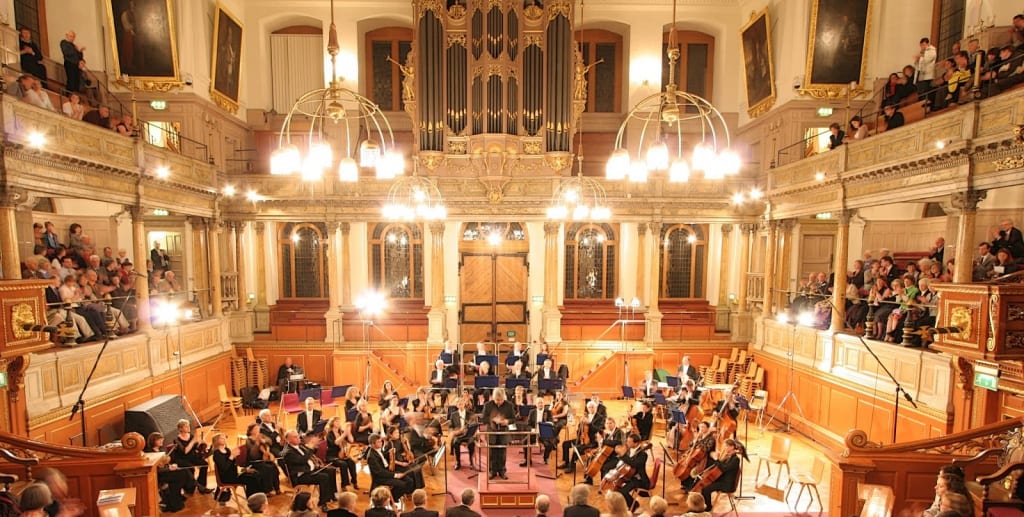Sometimes there is as much drama in a musical performance such as an opera or a lieder recital as there is in any play. With opera and lieder, this is perhaps because there is a text to interpret as well as the music,
But there are also times when the drama of non-vocal music is just as strong; and that is what occurred in Oxford at the Town Hall on Saturday 3 March. The Oxford Philharmonic has for the last four years has been running a Concerto Competition which is becoming, without doubt, an event of real interest. It tends to attract very young people who are also exceptionally talented and often studying at the university. It seems to be more “local” in that sense; but, of course, students of the university who have competed so far have come from a wide range of nations. It just happens that they are, for the time being, in Oxford and therefore it is easier for them to get the experience they need for a solo career in this competition.
Of the four winners so far, three have been violinists. And this year, celebrating the fifth anniversary, the three finalists comprised two violinists again, and one pianist. (A flautist, Daniel Shao, is the only non-violinist to win so far.) My impression was that going in to the final the expectation was that one of the violinists, Leo Appel or Victoria Gill, would take the prize. Appel is a very gifted 17-year-old who chose to play the Walton Violini Concerto. This work has an unusual intimate feel of its own that is partly due to its having been commissioned by Jascha Heifetz. The version that Appel, who is still doing his A levels (and is, I believe, planning to study at Cambridge) chose to play was the 1943 revision with changes, especially involving the cadenza, that added greater virtuoso display to the piece for Heifetz, without losing its unique feeling. Appel was able to negotiate the technical aspects of the piece with real agilty but also gave a rendering that drew one in to the soulful intimacy of the piece.
The other violinist was a student at Christ Church named Victoria Gill. She chose the more famous and flamboyant Bruch Violin concerto and played it with great style, energy and aplomb. She is only 21 and will take up a place at the Royal Academy of Music when she finishes her studies in Oxford. Either of these violinists would have been a worthy winner.
But the prize went to Joshua Asokan, a student of music and conducting at St Anne’s College, who has already conducted orchestras in Italy, Estonia, Sri Lanka and the UK. His interpretation of the Scriabin Piano Concerto in F Sharp was illuminating and moving. His win was popular, but it seemed a shame that there could not have been a tie with all three getting a first prize, they were all so good.
The Oxford Philharmonic Orchestra, conducted by John Traill, was the other star of the evening. There was drama in the way the players adapted to the styles and to supporting each of the soloists.
The point is that this orchestra is going from strength to strength and is involved not only in giving concerts but in initiatives such as this piano competition and various educational projects as well as an international piano festival every summer. Along with the increasingly renowned Oxford Lieder Festival and the Oxford Chamber Music Festival each autumn, Oxford is beginning to be not only famous for its university and its car manufacturing but also for a standard of music making that is of increasing ointernational interest. With Anne-Sophie Mutter, Stephen Isserlis, and Maxim Vengerov among soloists involved with the orchestra and even giving Master Classes; and conductors such as Valiery Gergiev and Yuri Temirkanov on the roster; the Oxford Philharmonic is developing a reputation for fine music making on a regular basis. Check it out! Oxford is a good place to see and experience the drama of music making these days.

